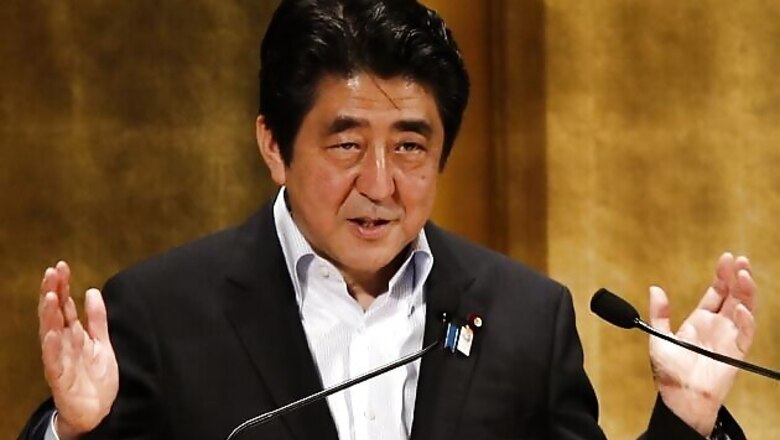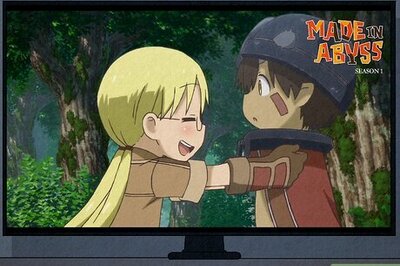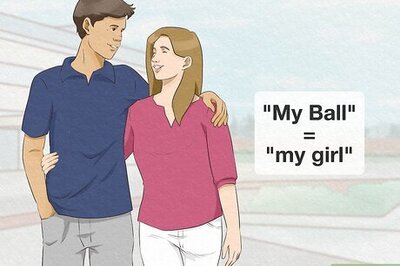
views
Japanese Prime Minister Shinzo Abe visited Tokyo's Yasukuni Shrine for war dead on Thursday, a temple seen as a symbol of Japan's World War II militarism, prompting a swift and sharp rebuke from China.
The first serving Prime Minister to visit the shrine in seven years, Abe however said he had no intention of hurting the sentiments of Japan's neighbours.
China and South Korea have repeatedly expressed anger in the past over Japanese politicians' visits to Yasukuni, where Japanese leaders convicted as war criminals by an Allied tribunal are honoured along with war dead.
Tokyo's relations with Beijing and Seoul are already strained by territorial rows and disputes stemming from Japan's wartime occupation of large parts of China and its 1910-1945 colonisation of the Korean peninsula.
Abe, who took office for a second term exactly one year ago, visited the shrine in central Tokyo around 0230 GMT. Television carried live video of his motorcade making its way to the shrine, built in 1896 by Emperor Meiji to enshrine the war dead, pray for eternal peace in Japan and to "foster friendly relations with people in the rest of the world".
The shrine played a central role in the wartime state Shinto religion which mobilised the population to fight in the name of a divine emperor.
On Thursday, Abe, dressed in a morning suit and a silver tie, bowed at the shrine before following a Shinto priest into an inner sanctum.
"There is criticism based on the misconception that this is an act to worship war criminals, but I visited Yasukuni Shrine to report to the souls of the war dead on the progress made this year and to convey my resolve that people never again suffer the horrors of war," Abe told reporters after the visit.
Stressing that it was natural for a nation's leader to pay his respects to those who died for their country, Abe said:
"I have no intention to hurt the feelings of the Chinese or Korean people."
Abe also said he shared the view of past Japanese leaders who had paid their respects at the shrine that ties with China and South Korea were important and that to make them firm was in Japan's national interests - and said that he would like to explain that if given the opportunity.
"It is my wish to respect each other's character, protect freedom and democracy and build friendship with China and Korea with respect, as did all the previous prime ministers who visited Yasukuni Shrine," Abe said in an English-language statement issued later.
Beijing, however, swiftly condemned and protested the visit, which it called "brazen".
"The Chinese government expresses strong indignation at the Japanese leader's trampling on the feelings of the people of China and the other war victim nations and the open challenge to historical justice ... and expresses strong protest and serious condemnation to Japan," the foreign ministry said in a statement.
FIRST SINCE 2006
Abe's visit to the shrine is the first by a serving Japanese prime minister since 2006. Former Prime Minister Junichiro Koizumi's annual visits to Yasukuni during his 2001-2006 tenure were a major factor in the chill in ties between Japan and its Asian neighbours.
Abe, who succeeded Koizumi in 2006, stayed away during that term and repaired frayed ties with China with a summit meeting.
But he later said he regretted not visiting the shrine during his first 2006-2007 term. Visiting the shrine is part of Abe's conservative agenda to restore Japan's pride in its past and recast its wartime history with a less apologetic tone.
He also wants to ease the restraints of Japan's post-World War Two pacifist constitution on the military.
Sino-Japanese ties, already strained by a row over tiny Japanese-controlled islands in the East China Sea that are also claimed by Beijing, chilled even further after China last month announced a new air defence identification zone that included airspace over the disputed islands.
China has criticised Japan's plans unveiled earlier this month to boost defence spending in coming years, buying early warning planes, beach assault vehicles and troop-carrying aircraft while seeking closer ties with Asian partners to counter a more militarily assertive China.
Abe has been active on the diplomatic front during his one year in office, but has not held summits with either Chinese or South Korean leaders.
Some political experts said Abe had probably calculated that his relatively high voter ratings could withstand any criticism over his Yasukuni pilgrimage, which would also shore up support in his conservative base.
He may also have felt that with ties with Beijing and Seoul in a deep freeze, a visit would hardly make things worse. But close ally the United States, which has made clear it does not favour Abe's historical revisionism, was unlikely to be pleased, the experts said.
"He probably thinks that things are not working well, so that this won't add further damage. I think he's wrong," said Koichi Nakano, a professor at Sophia University in Tokyo.
Abe's voter ratings have stayed at around 60 percent for most of the year due mainly to hopes his "Abenomics" recipe of hyper-easy monetary policy and spending was working.
His support slipped below 50 percent in recent polls after his ruling bloc forced a law through parliament tightening penalties for leaking state secrets that Abe said was needed for national security but that critics said had echoes of Japan's strict wartime secrecy regime.
"He probably thinks that it's OK, that's he's relatively popular and it's a matter of conviction," Nakano said.
"But everyone knew with Koizumi ... he wasn't a revisionist nationalist. But with Abe, that is precisely the question some people were asking. Now we know the answer."




















Comments
0 comment